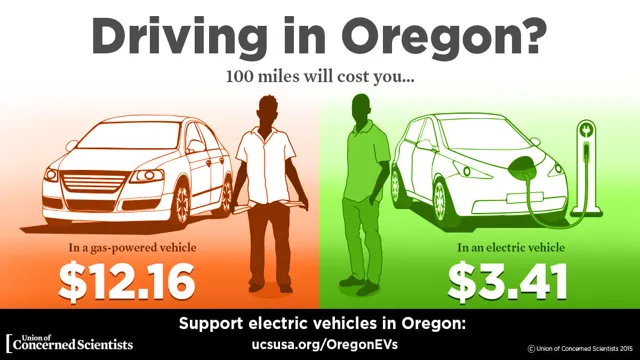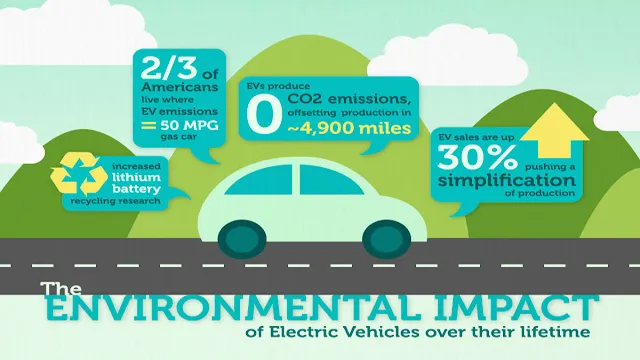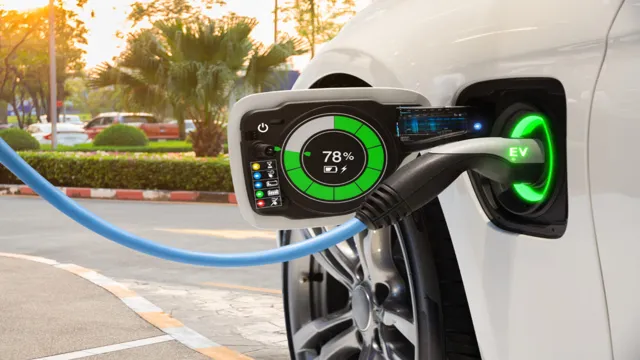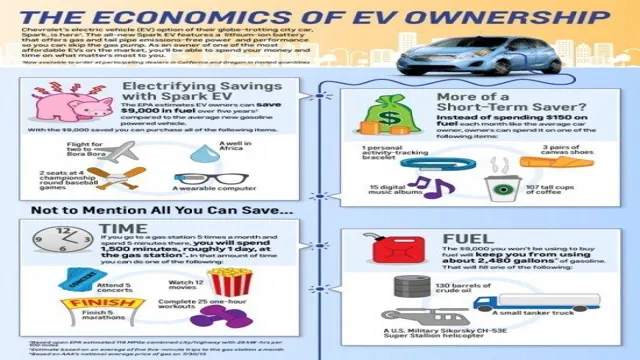Rev up your Savings with Fuel Benefits for Electric Cars
Electric cars are increasing in popularity due to their many benefits, especially when it comes to fuel savings. With rising fuel costs and concerns for the environment, electric vehicles are becoming a preferred choice for a growing number of motorists. Compared to gas-powered cars, electric vehicles offer incredible efficiency, which translates to money saved on gas and reduced emissions.
For those considering purchasing an electric car, understanding how these vehicles can help save money is essential. In this blog, we’ll discuss how electric cars offer fuel savings and how you can take advantage of this increasingly popular technology.
Fuel Benefits of Electric Cars
Electric cars are changing the way people think about transportation. One of the most significant fuel benefits of electric cars is their ability to save drivers money on fuel costs. Unlike gas-powered vehicles, electric cars do not require gasoline to run.
Instead, they run on electricity, which is much cheaper and more efficient. This means that electric car owners can save hundreds or even thousands of dollars on fuel costs each year. Additionally, electric cars produce less pollution than gas-powered vehicles, making them a more eco-friendly option.
With the advancement of technology, electric cars are becoming more affordable and accessible, making it easier for consumers to make the switch to a sustainable and cost-effective mode of transportation. Overall, the fuel benefits of electric cars are undeniable, and more and more people are making the switch to electric vehicles in order to save money and help protect the environment.
Electric Cars vs Gas Cars Fuel Costs
When it comes to fuel benefits, electric cars have a clear advantage over gas cars. The cost of electricity to power an electric vehicle is significantly lower than the cost of gasoline to fuel a traditional car. This means that electric cars are cheaper to operate in the long run, as they require less frequent maintenance and repairs.
Additionally, electric cars produce no harmful emissions, making them better for the environment and reducing overall air pollution. While the upfront cost of an electric car may be higher than a gas car, the savings on fuel costs over time can make up for it. Overall, the fuel benefits of electric cars make them an attractive and sustainable choice for environmentally-conscious drivers.
Electric Cars and Charging Costs
Electric cars are gaining traction due to the numerous benefits they have over traditional gas-powered cars. One of these benefits is the fuel cost savings. Electric cars have lower fuel costs compared to gasoline-powered cars.
This is because electricity is cheaper than gasoline, and electric cars require less maintenance. Moreover, electric cars can be charged anywhere, including at home, in public charging stations, or on the go. Contrarily, gas-powered cars require frequent refilling, which can sometimes result in long queues and high prices at gas stations.
The convenience of charging electric cars at home or stuffing energy into them while running errands reduces the cost of refueling, unlike gas stations. In the long run, it’s cheaper to buy an electric car as it allows you to save more on fuel costs. The initial cost of purchasing an electric vehicle may be higher than a traditional car, but it pays off in the long run when it comes to maintenance and operational costs.
Additionally, electric cars produce fewer greenhouse gas emissions, making them environmentally friendly and contributing to a cleaner atmosphere. Furthermore, electric car owners enjoy significant tax credits and incentives from the government when they purchase and use electric vehicles. These benefits ensure that electric cars are not just environmentally conscious but also budget-friendly options, further contributing to their growing popularity.
Cost Savings of Electric Cars
The cost savings of electric cars are considerable when compared to their petrol or diesel counterparts. One of the main fuel benefits of electric cars is their ability to charge using renewable energy sources, which often results in a much lower cost per mile than traditional fuel. Furthermore, electric cars have fewer moving parts and require less maintenance, which means that repairs and replacements are often less expensive compared to traditional combustion engine cars.
Additionally, the government often provides tax incentives and rebates for those who purchase electric cars, offering further savings for the consumer. Overall, electric cars offer a number of cost-saving benefits that make them an increasingly attractive choice for environmentally conscious drivers looking to save money on their daily commutes.
Long-term Savings with Electric Cars
Electric cars are becoming increasingly popular due to the cost savings they offer. In the long-term, electric cars are much cheaper to maintain and fuel than traditional gas-powered vehicles. For example, the cost of charging an electric vehicle is significantly cheaper than the cost of filling up a gas tank.
Additionally, electric cars are easier to maintain because they have fewer moving parts and don’t require oil changes. These cost savings can add up over time and make a significant impact on your finances. Furthermore, electric cars have a longer lifespan than gas cars, meaning that you may not have to replace them as frequently.
This reduces the overall cost of ownership and can lead to significant savings in the long run. Overall, choosing an electric car can have a positive impact on your finances and be an environmentally-friendly choice.
Tax Incentives for Electric Cars
The cost savings of electric cars go beyond just lower fuel costs. Tax incentives make it an even more appealing option. When you purchase an electric car, you may be eligible for federal tax credits that can help offset the cost.
Another incentive is state tax credits or rebates. In some states, you can qualify for lower or exempted sales tax, registration fees, or even income tax credits. Furthermore, electric cars require minimal maintenance, which can save you money in the long run.
With fewer moving parts, there are fewer chances of malfunction, and you can save on oil changes, brake replacements, and transmission repairs. Plus, electric cars have a longer lifespan than traditional gasoline cars, so you won’t have to replace them as frequently. When you combine the cost savings of electric cars with the positive impact on the environment, it is clear that electric cars are a smart and sustainable choice.
Maintenance and Repair Savings with Electric Cars
Electric cars have been gaining popularity over the years, and it’s not just because they’re better for the environment. One significant advantage of owning an electric car is the cost savings that come with it. Unlike traditional gasoline cars, electric cars have fewer moving parts and require less maintenance.
This means less money spent on oil changes, transmission repairs, and other maintenance costs. Additionally, electric cars tend to have a longer lifespan, which means less money spent on replacing parts and more money saved in the long run. Overall, electric cars can save drivers thousands of dollars over the life of the vehicle compared to traditional gasoline cars.
So not only are they better for the environment, but they’re also better for your wallet.
Environmental Benefits of Electric Cars
The fuel benefit of electric cars is significant when it comes to reducing pollution and protecting the environment. Unlike gasoline-powered vehicles, electric cars run on electricity stored in their batteries, which is a much cleaner fuel source. This not only reduces greenhouse gas emissions but also lessens our dependence on fossil fuels.
In addition, electric cars use regenerative braking, which recaptures energy that would otherwise be lost during braking and pumps it back into the car’s battery. This translates into better fuel efficiency and less energy wastage. When you add it all up, the environmental benefits of electric cars are undeniable.
They help reduce harmful emissions, protect our natural resources, and promote a cleaner, more sustainable future. So, if you care about the environment and want to make a positive impact, consider investing in an electric car.
Reducing Greenhouse Gas Emissions
Electric cars are becoming increasingly popular as a way to reduce greenhouse gas emissions. Driving an electric car produces zero emissions, unlike traditional gas-powered vehicles that release harmful pollutants into the air. This is beneficial for the environment, as it reduces the carbon footprint and helps combat climate change.
Additionally, electric cars also produce less noise pollution and require less maintenance than gas-powered cars. While the initial cost of purchasing an electric car may be higher, the long-term benefits make it a worthwhile investment. Imagine driving a car with the same ease as your smartphone without the need for frequent gas station visits or oil changes.
The switch to an electric car not only reduces your carbon footprint but also improves air quality and noise pollution, making it beneficial for both you and the environment.
Improving Air Quality
When it comes to electric cars, there are numerous environmental benefits that come to mind. One of the most significant advantages is the improvement of air quality. With traditional combustion engines, toxic gases such as carbon dioxide, nitrogen oxides, and sulfur dioxide are emitted into the atmosphere, contributing to air pollution and climate change.
However, electric cars produce zero tailpipe emissions, meaning they don’t produce any pollutants and have the potential to greatly reduce air pollution. Imagine the crisp and fresh air on a busy highway, free from the harmful exhaust fumes of traditional cars. Electric cars also have the added benefit of reducing noise pollution, making for a quieter and more peaceful driving experience.
By using an electric car, we can all play a part in reducing our carbon footprint and improving air quality for generations to come.
Innovations in Electric Car Technology
Electric cars are becoming an increasingly popular mode of transportation as people look for more environmentally-friendly options. One of the major benefits of electric vehicles is their fuel efficiency. Unlike gasoline-powered cars that require constant refueling, electric cars can be charged at home or at a charging station.
This means that electric cars are not only better for the environment, but they can also save drivers money on fuel costs. In fact, studies show that the average electric car can save drivers up to $900 a year on fuel. This is a significant amount of money that can be put towards other expenses or saved for the future.
With constant innovation in battery technology, it’s likely that electric cars will become even more fuel-efficient in the years to come. As more people make the switch to electric cars, the benefits of these vehicles will only become more apparent and widespread.
Conclusion
In our quest for sustainable transportation, electric cars have emerged as a shining beacon of hope. Not only do they significantly reduce our carbon footprint, but they also bring substantial fuel benefits. Gone are the days of worrying about filling up at the gas station or fluctuating fuel prices.
Instead, the power to fuel your vehicle lies in the palm of your hand. So, let’s charge forward into the future and rev up the electric revolution!”
FAQs
What are the fuel benefits of electric cars?
Electric cars have several fuel benefits over traditional gasoline-powered vehicles. Firstly, they do not require gasoline, reducing the cost and environmental impact of fuel consumption. Secondly, they can be charged at home or at public charging stations, providing convenience and flexibility for drivers. Lastly, electric cars produce zero emissions, further reducing their impact on the environment.
Are there any financial benefits to owning an electric car?
Yes, there are several financial benefits to owning an electric car. Firstly, some states offer tax incentives or rebates for purchasing an electric car. Additionally, electric cars require less maintenance than traditional cars, reducing maintenance costs over time. Lastly, the cost of charging an electric car is often cheaper than the cost of gasoline, meaning drivers can save money on fuel costs.
How far can you go on a single charge in an electric car?
The range of an electric car varies depending on the specific vehicle model and battery capacity. However, most electric cars can travel between 100-300 miles on a single charge, with some models capable of reaching even longer distances. Advances in battery technology and infrastructure are also improving the range of electric cars over time.
Are there any drawbacks to owning an electric car?
There are some drawbacks to owning an electric car, including a higher upfront cost compared to traditional cars, limited charging infrastructure in some areas, and longer charging times compared to filling up at a gas station. However, the environmental and financial benefits of owning an electric car often outweigh these drawbacks for many drivers.






